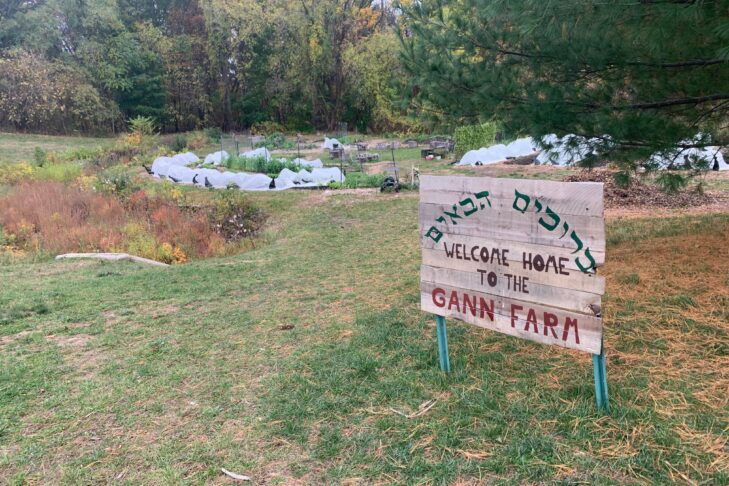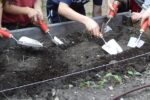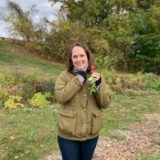On a cold day in November 2020, I was given the opportunity to act like a child again and wander around a local farm, exploring the endless connections between Judaism and gardening. The farm was The Gann Farm at Gann Academy, a Jewish high school in Waltham. I went with Leora Mallach, director of Beantown Jewish Gardens, and two other Serve the Moment fellows, Sophia Adler and Emily Nadel.
The Gann Farm engages the community in earth-based Judaism, regenerative agriculture, experiential learning and spiritual practice. Sophia wrote the farm “gave [her] hope that the next generation of Jewish people in Greater Boston are growing up to care about the earth in connection to their Jewish values.” We were able to see first-hand that the farm truly is an outdoor classroom and a dynamic learning environment.
Related
While we were there, we learned that the farm began as a vision belonging to Noah Weinberg, Jewish life coordinator at Gann: “For the last few years working at Gann, I’d been staring out the window looking at our fields, just dreaming of what could happen if we decided to grow some food here.”
Noah said that at the time, the land “was actually not the most beautiful or perfect space that we could start a farm in. There’s only about 6, 7, 8 inches of soil before you get to sub-soil. But what we’re teaching here is that we can be healing forces…This piece of land that others would have rejected, we’re going to make it the center of what we’re doing. My hope for this space is that we can come and practice ‘radical amazement,’ as Heschel said.”
I was so impressed by this ability to materialize such an impressive span of farmland in only a few short years from what used to be sports fields. This dream of a living, vibrant, resilient base for Jewish learning is now a reality. The vegetable farm, growing many varieties of vegetables and herbs, enables the Gann Students and community to connect to Jewish tradition in a tangible, experiential way.
One example of this experiential Jewish learning is a rainbow garden containing seven beds with plants arranged in the colors of the rainbow, recalling the story of Noah and our commitment to the earth: to not only never again destroy it, but to heal it and help it thrive. Another is a Jewish calendar garden, with one garden bed for each month, bringing alive the essence of that month through the plants that grow there.
The produce from the farm is distributed to many sources. There is a weekly farm stand for the Gann community as a whole, and Gann lunches include vegetables from the farm so that students can taste their hard work. Some of the produce has also been sold to Dushez Catering and Inna’s Kitchen, as well as donated to Jewish Family & Children’s Service’s Family Table.
I am incredibly grateful to have had the opportunity to explore this outdoor classroom and plan on returning soon, as it’s open to members of the Greater Boston Jewish community to come learn, taste and enjoy.
This post has been contributed by a third party. The opinions, facts and any media content are presented solely by the author, and JewishBoston assumes no responsibility for them. Want to add your voice to the conversation? Publish your own post here. MORE





